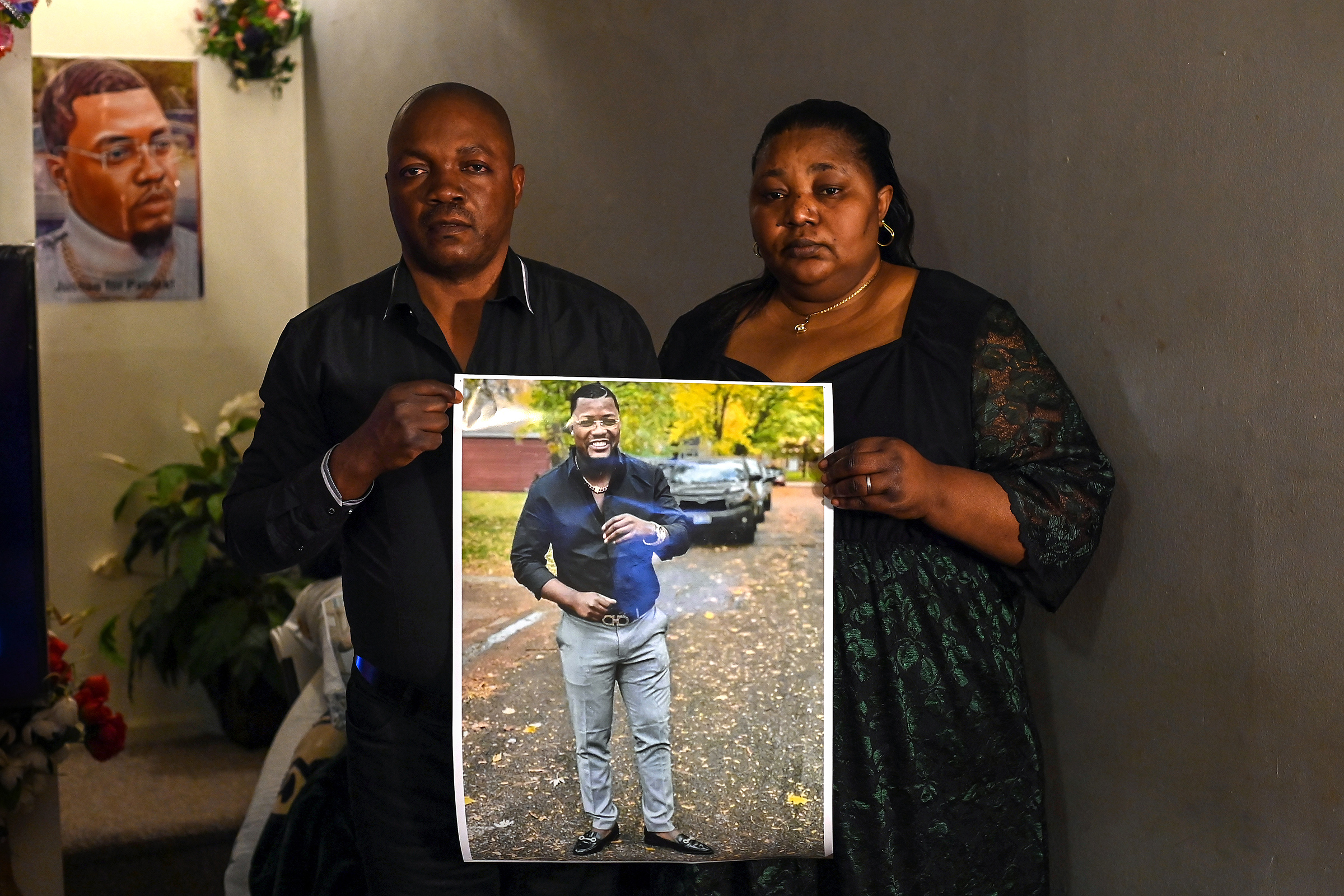
As a Grand Rapids, Mich., court on Friday arraigned police officer Christopher Schurr on second-degree murder charges in connection with the April shooting death of Patrick Lyoya, Schurr participated in the courtroom proceedings from another room. Dressed in an orange jail uniform and a blue surgical mask, Schurr responded to questions from an area reserved for jailed defendants, rather than police officers.
Judge Nicholas Ayoub advised him of his rights and noted that Schurr had previously entered a not guilty plea. Schurr had been suspended with pay since the shooting—during which video footage captured 26-year-old Lyoya, an unarmed Black man, engaged in a brief chase and struggle before being shot while face-down in a Grand Rapids front yard—but local Police Chief Eric Winstrom announced Thursday that he would now suspend Schurr without pay and recommend that Schurr also be fired. Schurr’s lawyers could not be reached for comment Friday but said in court that Lyoya’s shooting had been justified. Before the end of Friday’s remote court proceedings, Ayoub granted Shurr a $100,000 bond.
What happened Friday in Ayoub’s courtroom followed the routine and rigidity of the usual legal process, but took on an extra layer of weight—perhaps because, while the words and gestures were familiar, their context was rather rare. Schurr had joined a small subset of police officers charged with murder or non-negligent manslaughter. Only 220 faced those charges in the rough decade from 2005 to 2016, according to the Henry A. Wallace Police Crime Database; since that time, a small number, including four in Minneapolis, have been charged with crimes connected to a death. Meanwhile, a Washington Post tally of people shot and killed by on-duty police in the United States contains records of nearly 1,000 deaths in 2015 alone, and more than 7,000 total since the start of that year.
The two counts quantify a reality of which most in the courtroom, like those whom local TV news crew captured protesting outside, were likely already aware. Few officers are charged with crimes in connection with their on-duty service—and an even smaller group still are convicted.
Charges against police officers are in fact unusual enough that Lyoya’s father, a Congolese refugee who had called for the officer to be arrested within minutes of viewing a video of his son’s final moments, expressed a particularly American kind of surprise.
“We strongly believed there was no justice in America, until today,” Peter Lyoya told the Washington Post Thursday, a little over two months after the fatal shooting. “What I want is the final justice for my son.”
The elder Lyoya was far from alone.
In the days after Lyoya was shot, police-accountability activists, lawyers, and even Black city and county officials described a local policing environment that left Black and Latino residents afraid of being roughed up—even killed—in encounters with the city’s law enforcement. And some described little faith that the system, which had yet to rein in what they saw as widespread policing excesses, would charge the officer who shot Lyoya with any crime.
Read more: Behind ‘Grand Rapids Nice,’ Police Problems Run Deep in Michigan
On Thursday, at a press conference after the charges against Schurr were made public, Grand Rapids NAACP branch president Cle Jackson expressed sentiments that could be described as wary. Jackson told reporters he’d been shocked by the second-degree murder charges filed against Schurr—but that now, reassured that the killing would be examined in court, he would be watching the legal process closely.
“Now,” Jackson said, “the fight really begins.”
More Must-Reads From TIME
- The 100 Most Influential People of 2024
- Coco Gauff Is Playing for Herself Now
- Scenes From Pro-Palestinian Encampments Across U.S. Universities
- 6 Compliments That Land Every Time
- If You're Dating Right Now , You're Brave: Column
- The AI That Could Heal a Divided Internet
- Fallout Is a Brilliant Model for the Future of Video Game Adaptations
- Want Weekly Recs on What to Watch, Read, and More? Sign Up for Worth Your Time
Contact us at letters@time.com